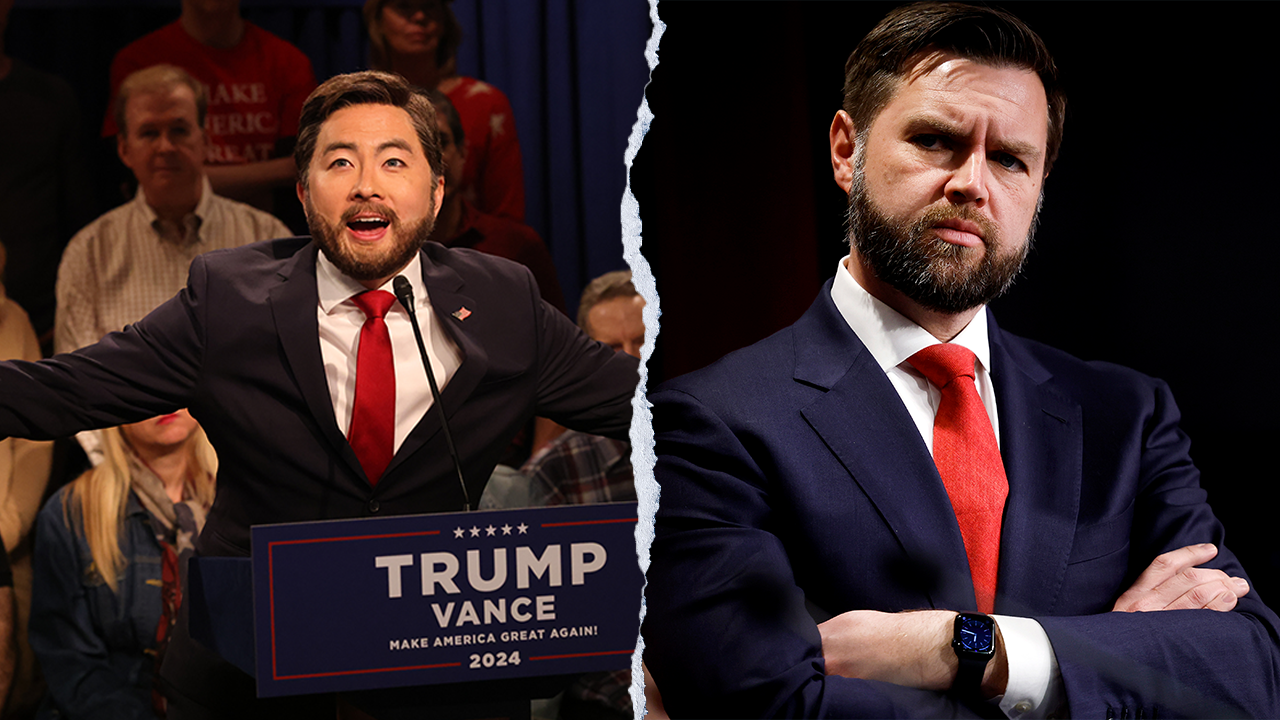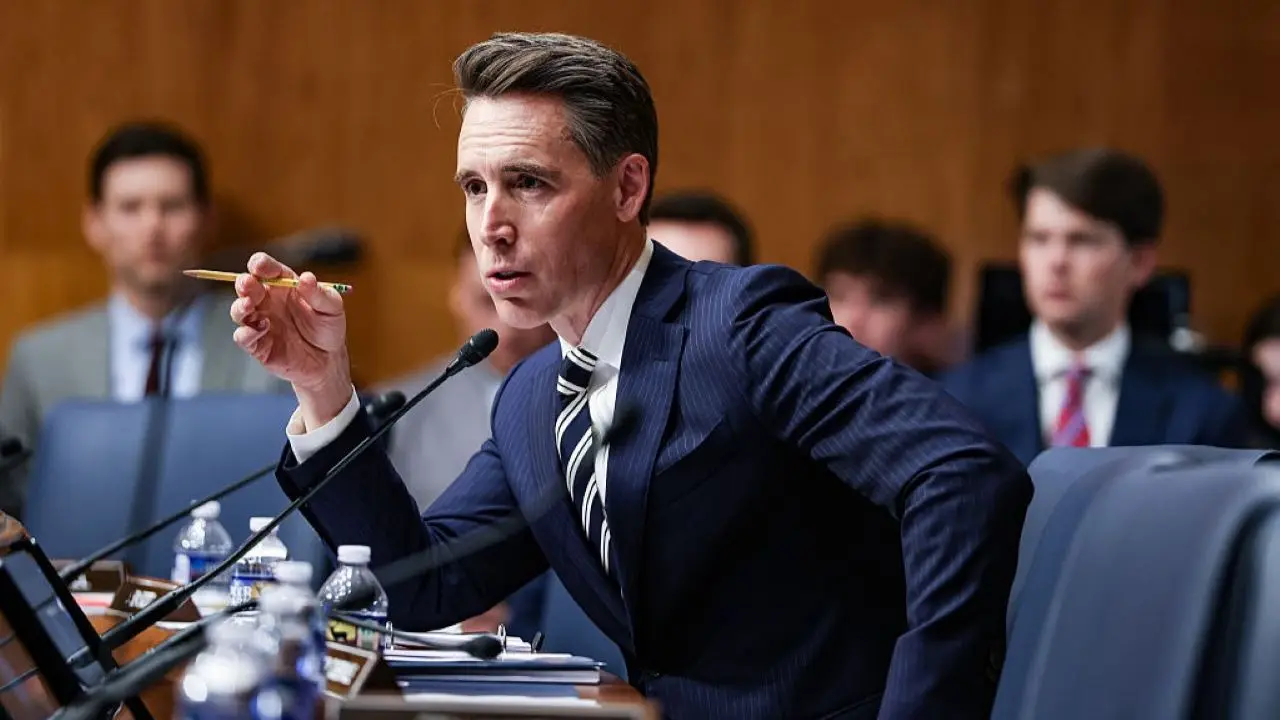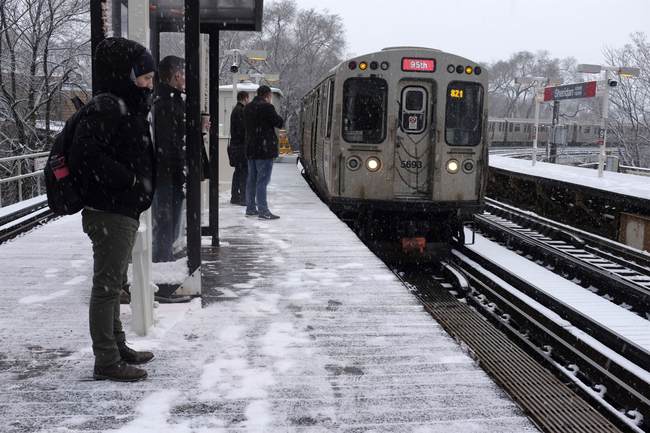As U.S. Treasury Secretary Scott Bessent and Chinese Vice Premier He Lifeng meet this weekend in Geneva, Switzerland, the backdrop to their talks is a Chinese economy facing rising pressure from trade tensions, domestic unrest, and growing structural instability.
The talks, which come after a series of tit-for-tat trade measures, follow President Donald Trump’s decision to impose sweeping 145% tariffs on a wide range of Chinese imports last month.
China has publicly condemned the tariffs and vowed to respond, but behind the scenes, Beijing is confronting a series of escalating economic challenges.
Trump’s Sovereign Wealth Fund: What Could It Mean For Your Money?
Among the most pressing issues is a sustained economic slowdown that analysts say is far more severe than official figures indicate.
Despite reporting 5.4% growth in the first quarter, experts such as China analyst Gordon Chang argue that underlying indicators tell a different story.
“Their economy is actually in distress,” Chang said in a recent interview.
“We know the direction, which is down.” Chang pointed to China’s consumer price index, which fell 0.7% in February and 0.1% in March, suggesting deflationary pressures.
This Could Be the Most Important Video Gun Owners Watch All Year
He also noted a 3.5% drop in tax receipts, a figure inconsistent with the reported growth rate.
Author @GordonGChang on China’s economy:
“I think there’s no doubt that China right now, its economy is in distress.” pic.twitter.com/6sugKHOKpA
— State Armor (@StateArmor) May 3, 2025
Since taking power, Chinese President Xi Jinping has moved to limit access to key economic data, including statistics on land sales, foreign investment, and unemployment.
In 2023, Xi signed an order revising China’s “Guarding State Secrets” law, which now allows the government to classify economic indicators as national security information. Violations of the law can result in severe penalties, including imprisonment or death.
According to Yale Law School’s Jeremy Daum, this growing opacity creates significant risk for international investors and complicates economic assessments.
“It’s the lack of clarity that will remain an unquantified risk to doing business in China,” Daum said.
Recent reports indicate that China’s economic challenges have moved beyond government statistics.
Late last month, hundreds of workers protested factory closures and unpaid wages in cities across China.
Affected industries include construction, sporting goods, and electronics. Prior to the protests, the Financial Times reported a widespread slowdown in factory production, with some operations halting entirely due to reduced demand linked to the new tariffs.
In response, the People’s Bank of China introduced a package of monetary policy adjustments aimed at injecting liquidity into the economy.
These include a 50 basis point cut to the reserve requirement ratio, freeing up approximately 1 trillion yuan, as well as cuts to commercial lending rates and mortgage rates for first-time homebuyers.
The measures come as China continues to grapple with a prolonged real estate crisis.
Following the collapse of major developers such as Evergrande and Country Garden in 2021, many housing projects remain unfinished, while home values have declined.
With real estate accounting for nearly a third of China’s GDP and a large portion of household wealth, the downturn has had widespread effects. Local governments, heavily reliant on land sales for revenue, are now facing ballooning debt burdens.
Youth unemployment also remains a concern.
Officially reported at nearly 17%, the rate is likely higher.
After youth unemployment hit a record 21.3% in 2023, the Chinese government temporarily suspended publishing the data before reintroducing it with a revised formula that excluded students.
Despite these headwinds, President Xi has remained defiant.
In response to the new U.S. tariffs, he declared that China is “not afraid” of a trade war, warning that “there are no winners” in such a conflict.
Chinese officials have described the tariffs as “unilateral bullying and coercion.”
However, according to Gordon Chang, internal political dynamics may be preventing Xi from changing course. “The issue though…is the political system in China,” Chang said.
“Xi Jinping has configured it so he can’t make an overture to the United States, which would be the rational thing to do, because he cannot appear weak.”
Both sides have presented the Geneva talks as coincidental.
“I was going to be in Switzerland to negotiate with the Swiss,” Secretary Bessent said in a recent Fox News interview.
“Turns out the Chinese team is traveling through Europe, and they will be in Switzerland also. So we will meet on Saturday and Sunday.”
While Beijing and Washington are expected to address the ongoing tariff dispute and broader trade issues, the backdrop suggests deeper tensions ahead, as China’s internal economic challenges continue to mount.
Connect with Vetted Off-Duty Cops to Instantly Fulfill Your Security Needs
Read the full article here


![U.S. Tariffs Trigger Chaos in China as Economy Teeters, Expert Sounds Alarm [WATCH] U.S. Tariffs Trigger Chaos in China as Economy Teeters, Expert Sounds Alarm [WATCH]](https://www.lifezette.com/wp-content/uploads/2024/12/2024.12.26-03.32-lifezette-676d770e214f3.jpg)






![Democrats’ Latest Shutdown Demands Prove Fight Isn’t About Health Care: Rep Emmer [WATCH] Democrats’ Latest Shutdown Demands Prove Fight Isn’t About Health Care: Rep Emmer [WATCH]](https://www.rvmnews.com/wp-content/uploads/2025/11/2025.11.09-09.05-rvmnews-69105946151a5.jpg)


